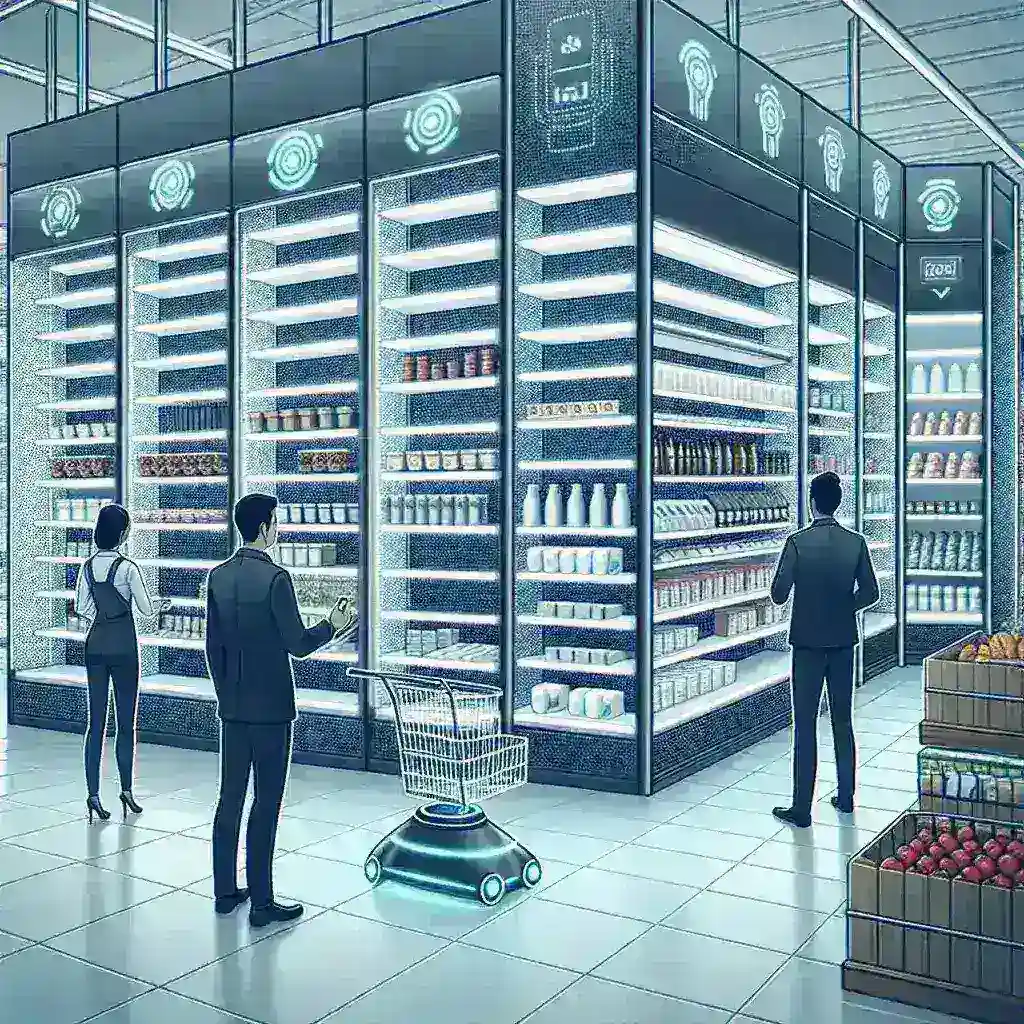Introduction to Walmart’s Smart Shelves Initiative
Walmart, the retail giant known for its constant innovation, is embarking on a groundbreaking initiative to enhance its in-store efficiency through the deployment of smart shelves equipped with AI restocking sensors. This technology aims to streamline inventory management and improve the overall shopping experience for customers in U.S. stores. In a rapidly changing retail landscape, such advancements are not just useful; they are essential for maintaining competitive advantage.
The Technology Behind Smart Shelves
The smart shelves leverage sophisticated AI algorithms and sensors that monitor stock levels in real-time. When an item is picked up or purchased, the sensors instantly detect the change in inventory and send alerts to store managers, indicating which items need restocking. This technology minimizes the traditional lag time associated with manual inventory checks and ensures that shelves are always stocked with popular products, thereby reducing the chances of lost sales.
How AI is Transforming Inventory Management
Artificial intelligence plays a critical role in making these smart shelves effective. By analyzing shopping patterns, the system can predict when certain items are likely to run low and proactively suggest restocking orders. This predictive capability not only enhances efficiency but also reduces waste, as stores can align their inventory more closely with actual customer demand.
Historical Context: The Evolution of Retail Technology
The concept of automation in retail is not new. Over the past few decades, stores have transitioned from manual inventory management to automated systems. The introduction of barcode scanning in the 1970s marked a significant leap, and over time, retailers have adopted various technologies, including RFID and POS systems. Today, AI-driven solutions like Walmart’s smart shelves represent the next evolution in this ongoing journey.
Benefits of Smart Shelves for Walmart and Customers
- Improved Stock Availability: Customers will encounter fewer empty shelves, leading to enhanced shopping satisfaction.
- Reduced Labor Costs: With automated inventory management, Walmart can allocate its workforce to more customer-centric roles.
- Data-Driven Decisions: The insights generated from smart shelves can inform future merchandising strategies.
- Enhanced Customer Experience: Quicker restocking means that customers will have easier access to their desired products.
Challenges and Considerations
Despite the promising advantages, implementing smart shelves comes with its share of challenges. The initial investment in technology and infrastructure can be substantial, and there are concerns regarding data privacy and security. Moreover, staff training is vital to ensure that employees can effectively operate and maintain the system.
Future Predictions: The Road Ahead for Retail Technology
As Walmart pilots these smart shelves, industry experts predict that AI will play an even larger role in retail operations. The success of this initiative could pave the way for broader adoption of similar technologies across the industry, transforming the very nature of the shopping experience. Furthermore, as consumer expectations evolve, retailers will need to embrace technology as a core component of their business strategies.
Real-World Examples of AI in Retail
Other retailers have begun exploring similar technologies. For instance, Amazon has implemented advanced inventory systems in its stores, utilizing AI to automate various aspects of the shopping experience. This trend is likely to continue, as retailers seek to leverage technology to meet changing consumer demands.
Cultural Relevance: The Impact of Technology on Shopping
The integration of AI into retail has significant cultural implications. As consumers become accustomed to instant gratification and seamless shopping experiences, expectations will continue to rise. Retailers like Walmart are now tasked with not only meeting these expectations but exceeding them through innovative solutions.
Conclusion
Walmart’s pilot program for smart shelves with AI restocking sensors is a fascinating glimpse into the future of retail. By embracing technology to enhance inventory management and customer experience, Walmart is positioning itself at the forefront of retail innovation. As this program unfolds, it will be interesting to observe its impact on the wider industry and consumer shopping behaviors.
Expert Insights
As Walmart continues to explore AI-driven solutions, experts emphasize the importance of balancing technology with personal customer service. While automation can enhance efficiency, the human element remains essential in providing a satisfying shopping experience.
Final Thoughts
The ongoing evolution of retail technology promises to reshape the landscape as we know it. With initiatives like smart shelves, Walmart is not only adapting to the current market but also setting the stage for the future of shopping. As retailers advance their technological capabilities, consumers will benefit from enhanced shopping experiences, reflecting the dynamic nature of our modern world.

